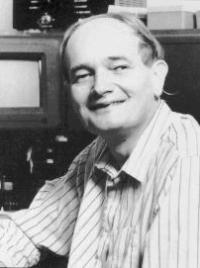
Our main goal is to develop effective cancer treatments based on a deeper understanding of the molecular processes occurring in human cancers. The laboratory seeks to close the gap between basic cancer research and the early clinical trials programs at Princess Margaret Hospital. To this end, we have access to a wide range of exciting new anticancer agents that are just entering early human clinical trials. Areas of emphasis include the use of xenograft models including primary orthotopic implants from human cancers, and the development of analytical methods for studying complex molecular interactions at the single cell level.
We have particular expertise in the development and application of advanced methodology based on the use of flow cytometry and digital fluorescence microscopy. This technology development is done in close collaboration with members of the Physics Division, the Department of Pathology, and the STTARR Program. Areas of current interest include the effects of tumour hypoxia on survival signaling in solid tumours; the analysis of complex signaling interactions in hematological malignancies based on multiparametric flow cytometry; and the role of aberrant signaling pathways in the growth of pancreatic cancers.
In addition to using model systems based on tissue culture and human tumour xenografts, the laboratory is also involved in the analysis of samples obtained from patients on clinical trials involving molecular cancer therapeutics.
We have particular expertise in the development and application of advanced methodology based on the use of flow cytometry and digital fluorescence microscopy. This technology development is done in close collaboration with members of the Physics Division, the Department of Pathology, and the STTARR Program. Areas of current interest include the effects of tumour hypoxia on survival signaling in solid tumours; the analysis of complex signaling interactions in hematological malignancies based on multiparametric flow cytometry; and the role of aberrant signaling pathways in the growth of pancreatic cancers.
In addition to using model systems based on tissue culture and human tumour xenografts, the laboratory is also involved in the analysis of samples obtained from patients on clinical trials involving molecular cancer therapeutics.




 https://orcid.org/0000-0003-1323-2655
https://orcid.org/0000-0003-1323-2655